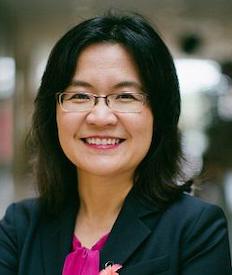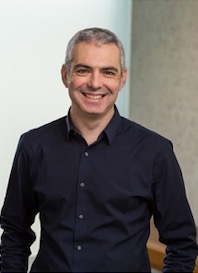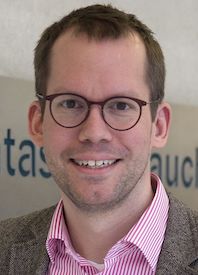Want to meet other members of the battery modelling community and discuss the latest battery applications and research?
In 2019 over 170 battery modelling researchers from academia and industry came together in a friendly and inclusive environment at the first Oxford Battery Modelling Symposium to discuss the latest findings in our field. We initiated the event to bring together mathematicians, chemists, physicists and engineers, so that we could learn from each other, discuss best practice, and provide excellent networking opportunities. The popularity of the event was reflected in the number of high profile academic and industry representatives who attended, including researchers from many leading universities worldwide as well as industry delegates from companies including Siemens, Continental, Renault, PSA, BMW, Aston Martin, Williams Advanced Engineering, Johnson Matthey, and Comsol.
In 2020, OBMS ran again, switching to an online format at the last minute due to Covid. The event was a success, and again attracted a sizeable number of attendees and some great speakers over two days.
Oxford Battery Modelling Symposium 2021 will run as a virtual event, with presentations from world-leading experts. There will also be the opportunity to present your own research in our popular poster session. Full details to follow!
Senior researchers, early career researchers and PhD students, in academia, research institutes, and industry, in the UK and internationally
31st March 2021, Hosted Online.
Please contact clementine.hadfield@oerc.ox.ac.uk for general queries about the conference, or events@eng.ox.ac.uk for registration related queries

Professor Yue Qi is the Joan Wernig Sorensen Professor of Engineering at Brown University. She received her B.S. degree in Materials Science and Computer Science from Tsinghua University and her Ph.D. degree in Materials Science from Caltech. She spent the next 12 years working at the General Motors R&D Center. At GM, she developed multi-scale models starting from the atomistic level to solve engineering problems related to lightweight alloys, fuel cells, and batteries. She transitioned from industry to academia in 2013 and served on the faculty in the Chemical Engineering and Materials Science Department at Michigan State University till 2020. Professor Qi and her “Materials Simulation for Clean Energy” Lab develop multi-scale simulations methods to design materials atom by atom. All of the materials she studied are critically important for an energy-efficient and sustainable future. She is passionate about increasing diversity in Engineering and was the inaugurate Associate Dean for Inclusion and Diversity in the College of Engineering at MSU between 2018-2020.

Daniel Steingart is the Stanley Thompson Associate Professor of Chemical Metallurgy and Chemical Engineering and the co-director of the Columbia Electrochemical Energy Center. His group studies the systematic behaviors of material deposition, conversion, and dissolution in electrochemical reactors with a focus on energy storage devices. His current research looks to exploit traditional failure mechanisms and interactions in batteries, turning unwanted behaviors into beneficial mechanisms. His efforts in this area over the last decade have been adopted by various industries and have led directly or indirectly to five electrochemical energy related startup companies, the latest being Feasible, an effort dedicated to exploiting the inherent acoustic responses of closed electrochemical systems. Steingart joined Columbia Engineering in 2019 from Princeton University where he was an associate professor in the department of mechanical and aerospace engineering and the Andlinger Center for Energy and the Environment. Earlier, he was an assistant professor in chemical engineering at the City College of the City University of New York. Even earlier he was an engineer at two energy related startups . He received his PhD from the University of California, Berkeley, in 2006.

Dr. Birger Horstmann is leading the team “Theory of Electrochemical Systems” at the German Aerospace Center in the Helmholtz Institute Ulm. He studied Physics and Mathematics at the University of Jena and the University of Cambridge. After completing his PhD on theoretical quantum physics at the Max-Planck-Institute for Quantum Optics near Munich, Dr. Horstmann moved to the field of continuum modelling of batteries. His current research focusses on mesoscale models for electrochemical interfaces and interphases. This includes the theory of electrochemical double layers, nucleation and growth of reaction products, and the formation of interphases, e.g. SEI. Furthermore, he evaluates these mesoscale theories in macroscopic models of lithium and beyond lithium batteries.
REGISTRATION
Registration is now open and OBSM 2021 is free to attend. Please use this link or the SIGN ME UP! button at the top of the page to register.
POSTER ABSTRACTS
Any attendee is welcome to upload a poster; there will not be an abstract submission stage. However, please make sure file sizes are reasonable, nothing confidential is shared, and that posters are within scope (i.e. about battery modelling). This can be done any time from now up to and including during the event next week in the posters channel '#7-posters'. During the Symposium we will have a dedicated session to discuss posters and will select a couple for a short 'live' presentation from the author with Q&A.
Please read the Cvent Privacy Notice before registering.
We value the participation of everyone and want all participants to have an enjoyable and fulfilling experience. Accordingly, all participants are expected to show respect and courtesy to other participants throughout the workshop and through all communication channels, including but not limited to OBMS Slack channel and Zoom. To make clear what is expected, all participants, speakers, exhibitors, organisers and volunteers at OBMS are required to conform to the following Code of Conduct. Organisers will enforce this code throughout the virtual event.
SUMMARY
The Oxford Battery Modelling Symposium is dedicated to providing a harassment-free workshop experience for everyone. We do not tolerate harassment of workshop participants in any form.
All communication should be appropriate for a professional audience including people of many different backgrounds.
Be kind to others. Do not insult or put down other attendees.
Behave professionally. Remember that harassment and exclusionary jokes are not appropriate at the Oxford Battery Modelling Symposium. Do not send any unprofessional messages to other participants, including but not limited to private messages in Slack and Zoom.
Participants violating these rules may be asked to leave the symposium at the sole discretion of the organisers.
Thank you for helping make this a welcoming, friendly event for all.
CLARIFICATIONS
Harassment includes offensive communication related to gender, sexual orientation, disability, physical appearance, body size, race, religion, sexual images in public spaces, deliberate intimidation, stalking, following, harassing photography or recording, sustained disruption of talks or other events, inappropriate physical contact, and unwelcome sexual attention.
Participants asked to stop any harassing behaviour are expected to comply immediately.
Be careful in the words that you choose. Remember that words can be offensive to those around you. Offensive jokes are not acceptable at the Oxford Battery Modelling Symposium. Excessive swearing is not appropriate at OBMS.
If a participant engages in behaviour that violates this code of conduct, the organisers may take any action they deem appropriate, including warning the offender or expulsion from the symposium.
Filming/recording of the Oxford Battery Modelling Symposium and sharing or any recordings is strictly prohibited.
CONTACT INFORMATION
If you are being harassed, notice that someone else is being harassed, or have any other concerns, please contact a member of the Code of Conduct Committee via: events@oerc.ox.ac.uk
David Howey
Charles Monroe
Colin Please
Jon Chapman